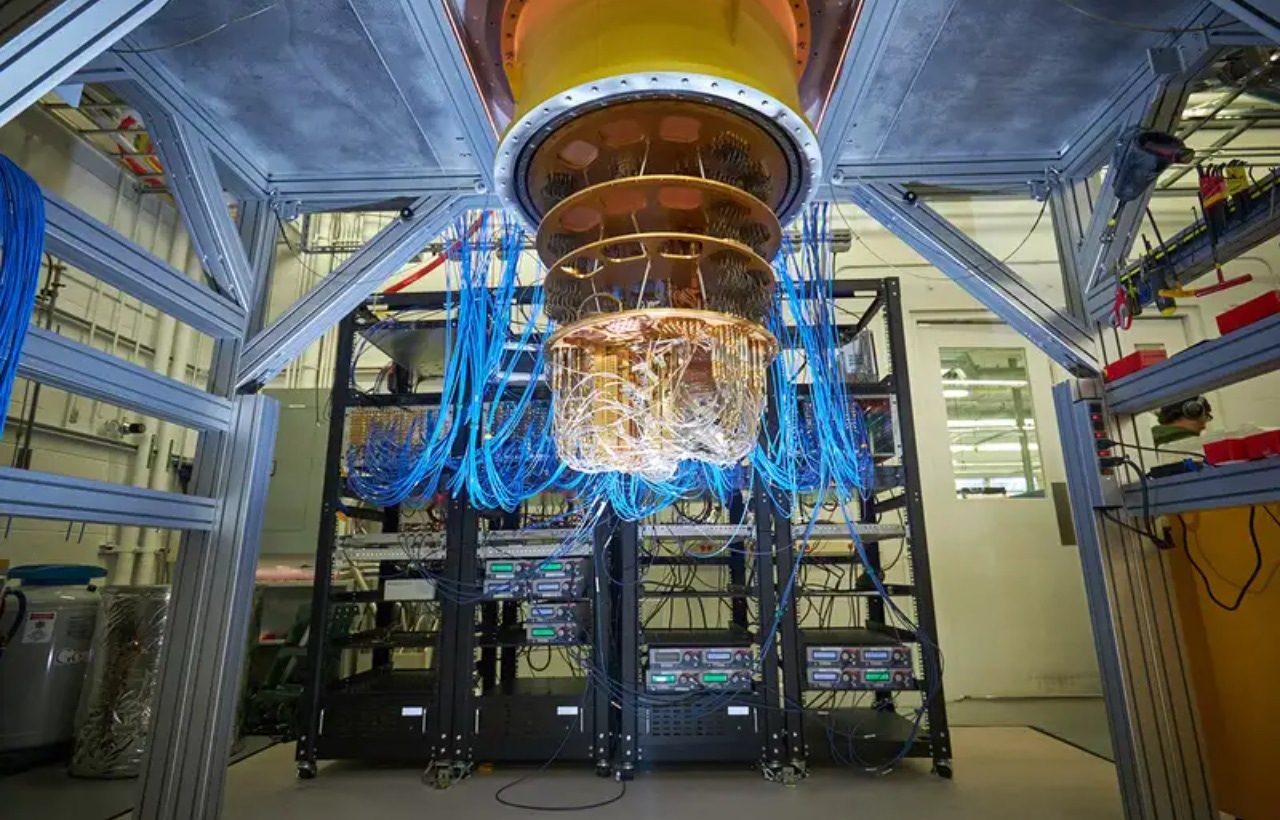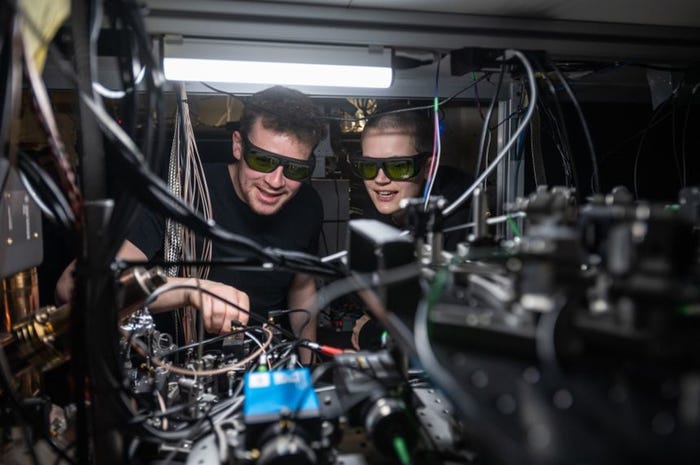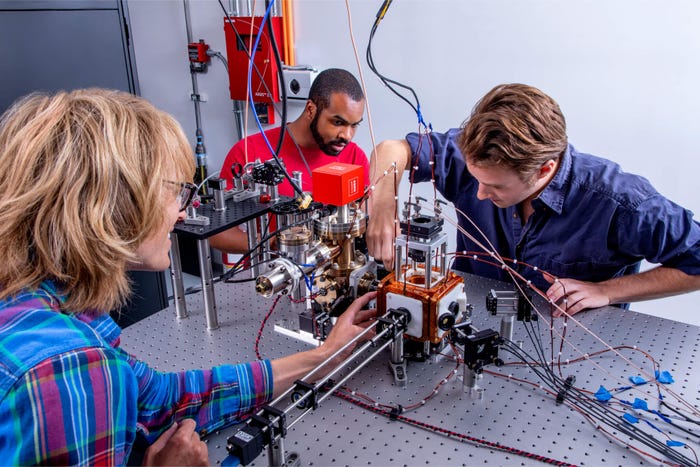
Connects decision-makers and solutions creators to what's next in quantum computing
Quantum Computers Shown to Outperform Classical ComputersQuantum Computers Shown to Outperform Classical Computers
Google Quantum AI research shows that even current noisy quantum computers can perform a benchmark calculation that classical supercomputers cannot

A team from Google Quantum AI has shown that today’s noisy, intermediate-scale quantum (NISQ) computers can perform a benchmark calculation that would take a classical computer years to calculate.
The research, published in Nature, used the random circuit sampling benchmark, one of the hardest benchmarks that can be performed on a quantum computer today.
These findings suggest that quantum computers have the potential to outperform classical computers for certain tasks, even with the current levels of noise. This is a significant step toward developing practical applications for quantum computers.
The research, using Google’s 67-qubit Sycamore quantum chip, demonstrated the existence of a "stable computationally complex phase" that is reachable with current quantum processors.
This means that even with the presence of noise, quantum computers can perform calculations that are beyond the capabilities of classical supercomputers. The experiment was part of a deeper study into the potential for quantum processors to carry out complex computations despite interference from background noise.
“The question that has been investigated lately by some prominent researchers and publications, is, can you find a phase where noisy quantum computers can fundamentally outperform supercomputers?” said Sergio Boixo, principal scientist at Google Quantum AI.
Boixo said these experiments showed quantum computers undergo a transition between two phases. In one of these, the “low-noise phase,” the benchmark proved sufficiently complex for the quantum computer to outperform classical comparisons.
The research additionally proved that the random circuit sampling benchmark that researchers have been using in experiments in 2019 is valid as it is beyond the capabilities of classical supercomputers.
Boixo added that the research also confirms the theoretical “Neven's Law” which states that quantum computing power is improving at a doubly exponential growth compared to conventional computing.
However, random circuit sampling does not have a real-world application. Future steps include refining the benchmark for practical applications.
About the Author
You May Also Like






